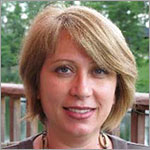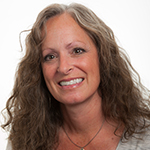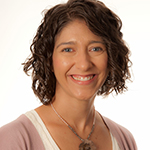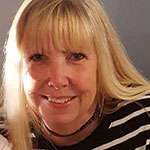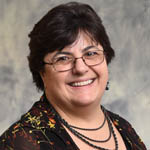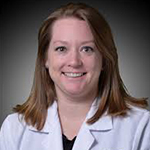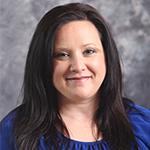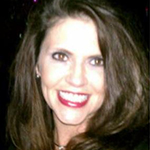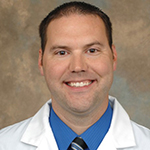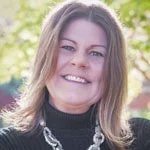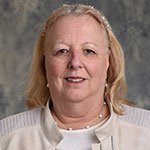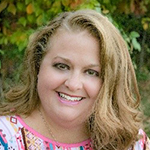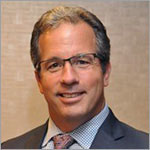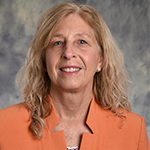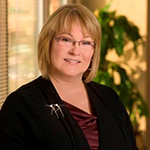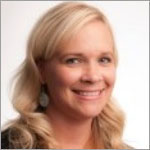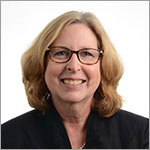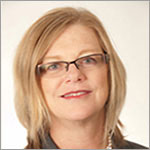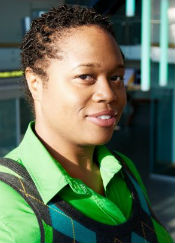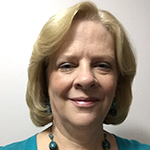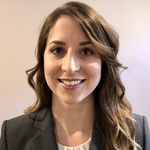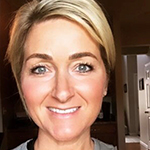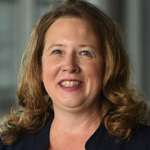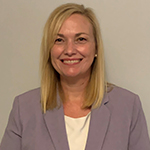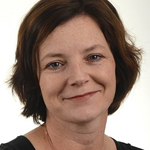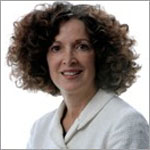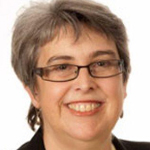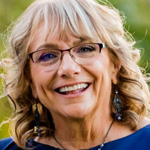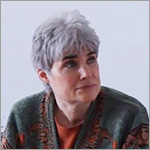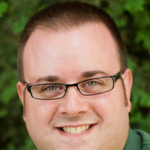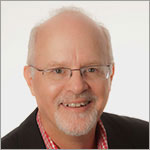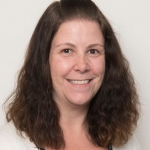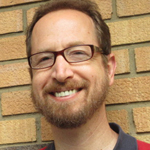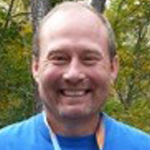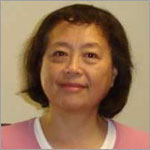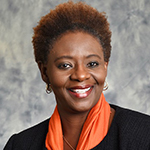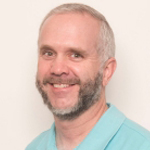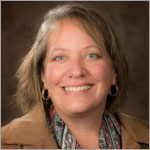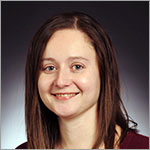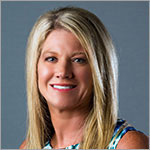- Online Programs
-
-
- Undergraduate
- Graduate
- Business
- Education
- M.A.Ed. Teacher as Leader - Autism & Applied Behavior Analysis
- M.A.Ed. Teacher as Leader – C&I
- Master of Arts in Education in Educational Leadership
- M.A.Ed. Teacher as Leader – Learning & Behavior Disorders
- M.A.Ed. Teacher as Leader – Moderate & Severe Disabilities
- M.A.Ed. Teacher as Leader – Special Education
- M.A.T. – Middle Grades
- M.A.T. – P-12 Education
- M.A.T. – Secondary Education
- M.A.T. – Special Education P-12
- View all education
- Healthcare
- Informatics
- Legal
- Nursing
- Technology
- Post-Graduate
- Education
- Ed.D. in Educational Leadership
- Ed.D. in Educational Leadership – Director of Pupil Personnel Certification
- Ed.D. in Educational Leadership – Higher Education Administration
- Ed.D. in Educational Leadership – Principal Certification
- Ed.D. in Educational Leadership – Superintendent Certification
- Ed.S. in Teaching and Leading – Autism & Applied Behavior Analysis
- Ed.S. in Teaching and Leading – Curriculum & Instruction
- Ed.S. in Teaching and Leading – Learning & Behavior Disorders
- Ed.S. in Teaching and Leading – Moderate & Severe Disabilities
- Ed.S. in Teaching and Leading – Special Education
- View all education
- Nursing
- Education
- Certificate
- View all programs
-
-
- Getting Started
- Resources
- Apply Now
- NKU.EDU
Faculty
The respected online faculty at NKU are dedicated to helping you develop the knowledge and expertise needed to achieve both your academic and professional goals. Learn more about our experienced faculty.
Home / Faculty
BUSINESS
Dr. J.C. “Duke” Thompson
Professor of Economics and Finance
I had always enjoyed the classroom environment and after a decade in the automotive industry, I thought I would try my hand at teaching to see if I liked it. That was 35 years ago.
Faith Benson
Professor
I want to contribute to my society, and I believe the best way to do that is to have knowledgeable and informed citizens that aren't afraid to face challenges.
Dr. Carole Cangioni
Associate Professor of Management
The biggest challenge people in business face today is an exponentially changing business environment requiring not only fast adaptation but a constant need for anticipation of the consequent changes.
Dr. Michael R. Carrell
Professor
My courses provide students the foundation knowledge, concepts, and real-world skills needed to succeed in any type of organization.
Dr. Teuta Cata
Professor
I love to share with other people information and experiences I know, and learn the same things from them. It is a great feeling to see that you can change young people's lives by opening new windows of opportunities for them.
Ada T. Cenkci
Associate Professor
In an online course, effective time management, following course syllabus and course announcements are needed to do well.
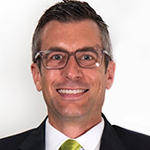
Dr. Joe Cobbs
Professor
Be active in your education to get the most out of it and plan your time and progression carefully to ensure the best opportunity for success.

Dr. Anh Dang
Assistant Professor of Marketing
Successful marketers tend to be creative, dedicated, and committed to their goals. They are also good at teamwork. They keep themselves updated with recent marketing trends.
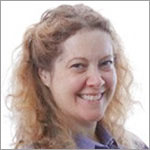
Teressa Elliott
Professor
Talking to my students and hearing their perspectives on the law makes me look at my thoughts and beliefs in a different way, and I think it helps keep me open-minded and makes me, for that reason, a better person.

Dr. Bulent Erenay
Assistant Professor
GSCM is a vast and exciting field, covering many areas from supplier relationship management to quality and operations to distribution and transportation, all of which require both hard and soft skills. Make sure you keep learning outside the classroom as well.

Jason Farkas
Lecturer
Ultimately, I want my students to recognize and practice effective, ethical, and empathetic leadership.
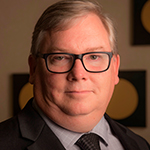
Gary A. Gray
Lecturer/Adjunct Professor
My objective is to combine my academic, corporate, and life experiences into the online classroom to educate students so they come away with a practical understanding of the material and how it can apply to their work and personal lives.

Dr. Chad Greenfield
Online Instructor
I want students to have a better understanding of how analyzing accounting information can be used by managers to make better and informed decisions.

Dr. Chip Heath
CoB Director of Online Learning
Success in marketing is all about controlled creativity. One has to be creative and willing to take chances. But they also need to fully understand the underlying strategy and adhere to that while being creative.

Jennifer Holt
Lecturer, NKU online MBA program
If one thing is consistent in life and business, it's that everything does change and will continue to change. If you don't like change, think about it as evolution. We all need to continually evolve.

Dr. Jang-Chul Kim
Professor
Students will learn how to apply models used by financial practitioners, especially in an investment area, to make optimal decisions.
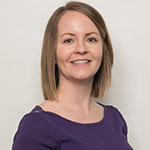
Marla Lemmon
Instructor
I want my students to strengthen their problem solving skills, select accurate methods for solving real-world problems, utilize technology appropriately, and discover what makes a procedure optimal and efficient.

Dr. Aron Levin
Professor/Chair
I want students to learn skills that will make them successful in business while also learning the importance of work/life balance.

Tobe Liebert
Assistant Professor and Assistant Director of the Law Library
Education is a life-long process, and the speed of technological change makes it important to keep your skills sharp and add to your base of knowledge.
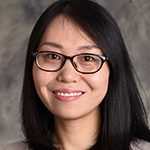
Dr. Jing Liu
Assistant Professor
Motivation and time management are important in successful online learning.

Dr. Yohann Mauger
Assistant Professor
The online experience is the same, with more freedom on your part.

Anne Melzer
Instructor
Teaching is my passion. I am dedicated to helping students expand their worldview and to develop as a scholarly individual during their time spent in my courses.
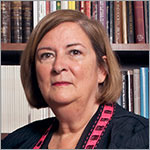
Dr. Debra Meyers
Professor
I want to help others achieve their goals through higher education just as I did as a non-traditional student.

Dr. Bridget Nichols
Professor
Students in my class will learn the fundamentals of the marketing profession and its role in business.

Dr. Jaclyn Perrmann-Graham
Assistant Professor of Management
Start strong and communicate with your instructors. Keeping open lines of communication, especially in the online environment, is critical to both your enjoyment of the course and your success.
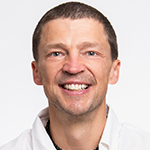
Dr. David Raska
Associate Professor of Marketing
The qualities that make someone successful in this field are being caring, passionate, and curious, while having intellectual humility and purpose.

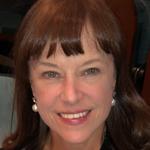
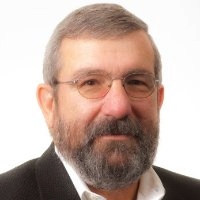
Dr. J.C. “Duke” Thompson
Professor of Economics and Finance
I had always enjoyed the classroom environment and after a decade in the automotive industry, I thought I would try my hand at teaching to see if I liked it. That was 35 years ago.
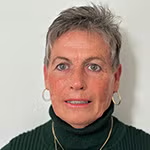
Susan Abdon Winters
Adjunct Professor
Act quickly to gain the experiential teachings of real-life education to your future career.

Dr. Sandra Spataro
Professor of Management
People are hard to manage. The different ways people react to managerial direction can be one of the biggest challenges leaders face.

Dr. Qing Su
Professor of Economics
Allocate sufficient time for your learning. It is very challenging to take the course in seven weeks.

Jennifer Taylor
Associate Director of Special Projects
The qualities that make someone particularly successful in business are being a good listener, communicator, and thinking creatively.
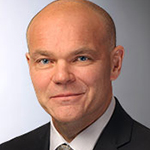
Mark Thackeray
Professor of Practice and Director
The biggest challenge faced in my profession today is understanding the complexities of Supply Chain Management and how impactful the supply chain performance can be on overall business success.
EDUCATION
Dr. Ryan Alverson
Assistant Professor
I want students to learn what drives them and their students to seek knowledge, learn, and become really engaged in whatever they are doing.
Dr. Amy Bacevich
Lecturer
When you are considering graduate programs in education, choose one that is most likely to help you become a better teacher, not just give you a degree. This one will do both.
Krista Burton
Director of Academic Success and Bar Support
Strive to do your very best and do not be afraid of success.
Dr. Denise Dallmer
Education Faculty
Teaching is a blend of supporting and encouraging students to be the best they can be as well as loving the content you teach.
Dr. John Huss
Professor of Education
I enjoy the teaching process and I seek to share that delight with students. I like to meet students where they are and bring them up to where I would like for them to be to experience success.
Dr. Kayla Steltenkamp
Professor
As a special educator, I know that my students encounter many educators throughout their educational journey and I want to facilitate their understanding that whatever disability may exist, each student has a great ability within them.
Dr. Brandelyn Tosolt
Associate Professor
I believe that education is the single greatest tool we have at our disposal to create a more just, equitable society.
HEALTHCARE/NURSING
Lisa Arehart
Part-Time Clinical Faculty
I think this is a good program. I believe there are a lot of options to help you narrow down which path you want to go into.
Dr. Anthony "Jay" Avenido
Lecturer
Knowledgeable and patient-oriented are two of the most important qualities needed to succeed in the world of medicine.
Dorothy Baker
Adjunct Professor
I have always had such great mentors. I realize the difference in mediocre and superior. It can make or break a student, so I strive to be the best I can, to instill knowledge that is purposeful and useful to students.
Dr. Marybeth Baribeau
Professor, NKU RN to BSN Program Director
The most important outcome for my students is applying their knowledge in their own practices to improve the health and safety of their clients.
Dawn Beahr
Adjunct Faculty
Why. It is important to understand WHY we are doing what we do to take care of our patients.
Dr. Jitana Benton-Lee
Assistant Professor
The DNP is a degree, not a role. Therefore, there are so many opportunities and ways DNP-prepared nurses can influence health outcomes, organization, systems leadership structures, and health policy.
April Bowman
Adjunct Health Science Faculty
Students will need self-motivation and time management to navigate the 7-week course format of the health science program.
Dr. Candi Constantine-Castillo
Adjunct Faculty
I can appreciate the unique challenges, as well as satisfaction, experienced by fellow learners in the online environment while balancing life, work and higher education.
Nathanael Ellis
Clinical Faculty
Be willing to put the time and effort into learning the material.
Roxanne Gall
AGACNP Concentration Coordinator
I want students to develop critical-thinking skills, role competence, cultural competence, and professionalism.
Natasha Smith-Holmquist
Adjunct Faculty
I want to pay it forward. I love teaching and want the students I teach to go forward and do great things!
Brian Kasson
Assistant Clinical Professor
The role of advocacy for the nursing profession is critical for all nurses at all levels. Nursing is fortunate to be in the position it is today because of the efforts of those who have gone before us. It is our professional obligation to continue the efforts to grow our profession.
Lisa English Long
Doctor of Nursing Practice Faculty
When working with children and families, a caregiver must have a caring and compassionate approach at all times.
Dr. Debra Maitre
Adjunct Faculty
Speak up—and get involved. This is an open and welcoming community.
Jennifer Moreland
FNP Concentration Lecturer
I would advise students who are considering this program to be ready for a challenge, but that in the end it will be worth it.
Kristine Pfendt
Associate Professor of Nursing
I have taught laboratory skills, medical-surgical clinicals and leadership practicums in addition to many didactic courses. Working with students has been my main objective and has made for a most rewarding career.
Dr. Denise Robinson
Regents Professor, Graduate Nursing Faculty
Teaching enables me to share with DNP and MSN students what I have learned over the years from the perspective of an active scholar, writer, researcher and active clinical practitioner. I am passionate about facilitating motivated students to achieve their career goals.
Crystal Summers
Lecturer in NKU's RN to BSN program online
Teaching is a fulfilling career. I enjoy sharing knowledge. In the classroom, I have the ability to be creative, which makes learning fun.
Barbara Kaye Tassell
Adjunct Online Faculty
I want to be able to help prepare the next generation of nurses and nursing educators so the profession is able to continue growing.
Angie Thomure
Nurse Practitioner
A deep understanding of concepts will allow them to appropriately apply important critical-thinking skills when they are caring for their patients.
Melissa Trabel
Adjunct Professor
The online program has great flexibility, is good for self-motivated students but has more online/computer work than an in-person class.
Dr. Karen Vietz
DNP Program Director
I strive to empower students to do all possible to advance the profession of nursing to enhance quality care for patients, families, and communities.
Dr. Dolores White
Assistant Professor, Nursing Education and Nurse Executive Leadership Concentration Coordinator
In nursing, a successful nurse truly cares about patient’s physical, emotional, and spiritual needs.
Dr. Lynne Zajac
Associate Professor
I have been involved in teaching nursing for almost 30 years in both the clinical and classroom setting and consider it a privilege to guide nursing students as they expand their roles as health care professionals.
UNDERGRADUATE
Shannon Alexander
Health Science Program Director and Assistant Professor
I have found the most successful students in my classes have excellent communication skills, are self-motivated and above all, have effective time management skills. My advice for any online student is to really focus on these three areas.
Dr. Alyssa Appelman
Assistant Professor
Online courses can be wonderful learning opportunities for students, but they require some self-motivation. I would definitely recommend coming up with an organizational system for yourself.
Dr. Rhonda Davis
Lecturer
I find that Interdisciplinary Studies attracts people who are change-makers, passionate and dedicated to their areas of focus.
Harold Dawson
Adjunct Professor
I started teaching because I enjoying sharing the insights of my discipline and showing students how sociology can help them make sense of their world.
Deborah S. Dempsey
Senior Lecturer
In the field of healthcare, being dedicated, hard-working, and compassionate are necessities.
Dr. Emily Detmer-Goebel
Professor
Know that education is never wasted. You never know where your journey is taking you, so with each step, embrace it with all you have ... and embrace the material in your individual classes.
Dr. Megan S. Downing
Associate Professor of Organizational Leadership
I hope students in my courses develop an increased level of self-awareness and understanding of others and develop a passion for lifelong learning.
Katie Englert
Adjunct Instructor
I love learning more about the world and various anthropological concepts, and I want to help facilitate the learning process for others while I continue to learn myself!
Dr. Joan Ferrante
Professor of Sociology
My teaching method absolutely hinges on hearing how students process, question, challenge, and even ignore the ideas I present. I make a point of watching and listening to students and other audiences (in all their diversities) as they work to process those ideas.
Jeffrey W. Fox
Lecturer/CMST 101 Program Coordinator
The course I teach is a support course in a multitude of online programs. My advice for taking this course is to pace yourself and take one thing at a time.
Dr. Rudy Garns
Associate Professor and Director
The big, complex, real-world problems that confront us all require interdisciplinary insights and solutions. I am fortunate to be in a position to help students see these problems from perspectives that are philosophical, scientific, humanistic, social and political.
Dr. Jacqueline R. Herman
Associate Professor
I want students to learn to critically read statistical results that are presented to them and to perform introductory statistical techniques to real-life data.
Ken Kippenbrock
Instructor
The flexibility of the online program allows you to better manage life commitments. As long as you are willing to commit time, thought, and effort, this program will provide you the knowledge and skills necessary to succeed in future endeavors.
Dr. Doug Krull
Professor
I hope students would gain considerable content knowledge, but I think it is also very important to learn about the research process in psychology.
Michael P. Laughlin
Adjunct Psychology Instructor
I started teaching to share my practical experiences as a school psychologist and to continue working with students.
Dr. Boni Li
Professor
The students who take online classes need to work hard, know the class requirements and schedule well, and communicate with their instructors if they have anything they do not understand.
Dr. Nana Arthur-Mensah
Assistant Professor
To complement my course content, I acknowledge students’ interests and past experiences and help them draw on those experiences when solving problems in the classroom and reflecting on content.
Dr. Alexis Miller
Associate Professor and Criminal Justice Online Program Coordinator
I enjoy working with students. Their excitement for life and desire to learn is a positive energy.
Dr. Carl Miller
Associate Professor
I enjoy interacting with students and helping them gain knowledge. The excitement they bring when they see they can complete tasks in a math-oriented class gives them a boost in confidence.
Dr. Karen S. Miller
Chair of the Department of Political Science, Criminal Justice, and Organizational Leadership
I enjoyed the challenge of getting students to think critically about our system of justice, crime, and law.
Dr. Irina Parkins
Psychologist
I would like for students to learn about the importance of psychology in human development and behavior. I want students to recognize all of the different facets of psychology.
Chrysalis Payne
Instructor
I believe Emotional Intelligence, which comes with studying sociology, will make someone successful in my field.
Kellie M. Pierson
Part-time Professor
It's my goal as a professor to help students gain an appreciation for psychology as a science and also be a better consumer of psychology and psychological information.
Dr. Mary Schilling
Lecturer
I want [students] to remember that science is fantastic. These courses are an opportunity to discover the answers to all those questions we've been asking since we were little kids.
Dr. Brad Sieve
Lecturer
I enjoy chemistry and hope that I can show the importance of chemistry in everyday life.
Dr. Michael J. Simonton
Lecturer in Anthropology, Director of Celtic Studies
I enjoy this subject, and I wanted to share Anthropology (and all that it can teach) with other people.
Dr. Eliah White
Lecturer and Adviser
I felt that I was good at [teaching] and enjoyed helping others complete college.
Request Information
Submit this form, and an Enrollment Specialist will contact you to answer your questions.
Or call 800-985-7215
By submitting this form, I am providing my digital signature agreeing that Northern Kentucky University (NKU) and its agent, Risepoint, may email me or contact me regarding educational services by telephone and/or text message utilizing automated technology or a pre-recorded message at the telephone number(s) provided above. I understand this consent is not a condition to attend (NKU) or to purchase any other goods or services. Privacy Policy. SMS Terms.
Ready to Begin?
Start your application today!
Or call 800-985-7215
800-985-7215
for help with any questions you may have.

